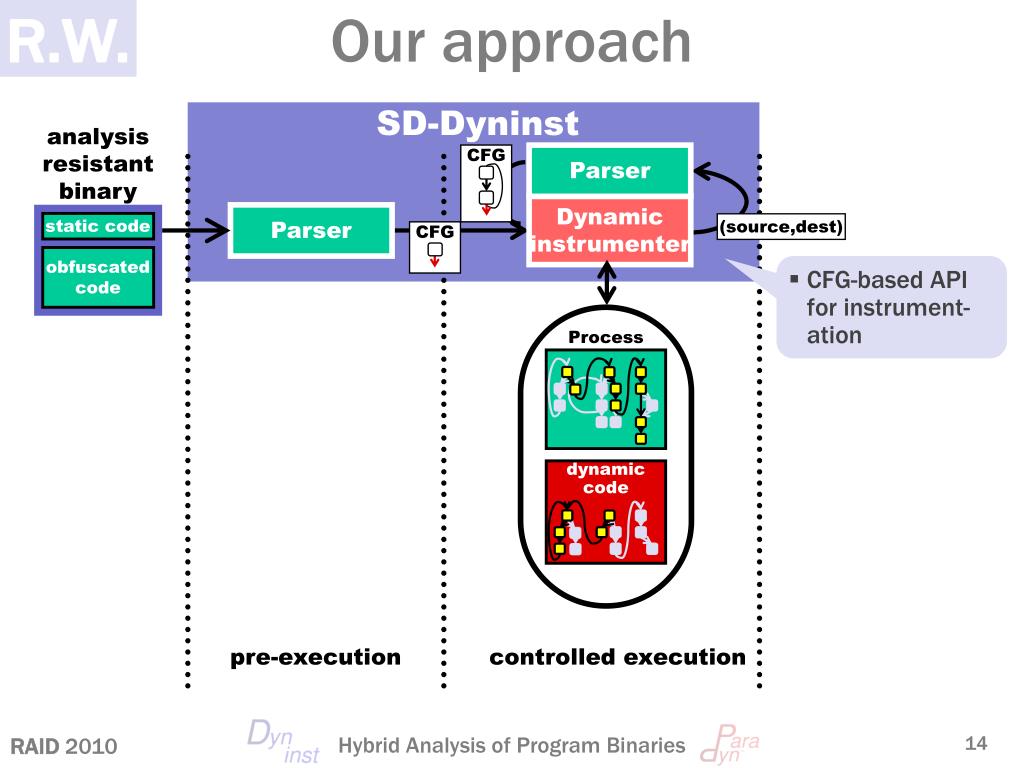New in Valgrind 3.10.1: 3.10.1 is a bug fix release. It fixes various bugs reported in 3.10.0 and backports fixes for all reported missing AArch64 ARMv8 instructions and syscalls from the trunk. If you package or deliver 3.10.0 for others to use, you might want to consider upgrading to 3.10.1 instead. Then valgrind will only be used for the non.sh and non.pl tests. However, with this measure in place, binaries invoked through scripts will not be invoked under valgrind. This can be solved by defining environment variables in the TESTSENVIRONMENT variable that are then used by the shell scripts. For example, add the following.

Dr. Memory is a memory monitoring tool capable of identifying memory-related programming errors such as accesses of uninitialized memory, accesses to unaddressable memory (including outside of allocated heap units and heap underflow and overflow), accesses to freed memory, double frees, memory leaks, and (on Windows) handle leaks, GDI API usage errors, and accesses to un-reserved thread local storage slots.
Dr. Memory operates on unmodified application binaries running on Windows, Mac, Linux, or Android on commodity IA-32, AMD64, and ARM hardware.
Dr. Memory is built on the DynamoRIO dynamic instrumentation tool platform.
Dr. Memory is released under an LGPL license. Windows, Linux, and Mac packages are available for download. The sources are also browsable.
Dr. Memory is faster than comparable tools, including Valgrind, as shown in our CGO 2011 paper Practical Memory Checking with Dr. Memory, where we compare the two tools on Linux on the SPECCPU 2006 benchmark suite:
(Valgrind is unable to run 434.zeusmp and 447.dealII).
Documentation is included in the release package as well as on this site: start with Installing Dr. Memory and Preparing Your Application.
The Dr. Memory release includes a System Call Tracer for Windows.
Dr. Memory includes Dr. Fuzz, a Fuzz Testing Mode, along with a configurable Dr. Fuzz: Dynamic Fuzz Testing Extension. Dr. Fuzz targets in-process function-level fuzzing, repeatedly running a target function while varying the inputs. It requires no access to source code, and supports code coverage-guided fuzzing, an input corpus, input dictionaries, and custom mutators.
Dr. Memory has its own discussion list.
Dr. Memory has its own Issue Tracker.
We welcome contributions to Dr. Memory. We use the same code review and workflow as for DynamoRIO.
- Dr. Memory version 2.3.18715 --- Sun Mar 28 2021 23:02:00

Valgrind is an instrumentation framework for building dynamic analysis tools. Which is a fancy way of saying that it's a debugging suite that automatically detects many memory management and threading bugs, which is a very good thing. Valgrind can handle dynamically generated code, so long as none of the generated code is later overwritten by other generated code. It can also perform detailed profiling to help speed up your programs. It comes with extensive documentation.
BTW, it's pronounced with a short 'i', named after the Nordic entrance hall to Valhalla. 'Grin', as in smile, rather than 'grind' as in what one does with coffee.
Installation and testing is very simple. Download the source from the site, extract in the usual place, run configure, make, and make install.
cd /usr/local/src/VALGRIND
wget http://www.valgrind.org/downloads/valgrind-3.6.0.tar.bz2
tar xvjf valgrind-3.6.0.tar.bz2
cd valgrind-3.6.0
../config
make
make install
Download Valgrind Windows
The ../config file consists of;
#!/bin/bash
./configure --prefix=/usr/local/$(basename $(pwd) | sed 's#-#/#')
Set the environment variables the usual way.
cd /usr/local/Modules/modulefiles
ln -s .base 3.6.0
If you don't have environment modules installed you should add the following to your appropriate path.
LD_LIBRARY_PATH /usr/local/valgrind/3.6.0/lib
MANPATH /usr/local/valgrind/3.6.0/man
PATH /usr/local/valgrind/3.6.0/bin
A short testing is achieved by running a usual program with a specified tool. Login a a normal user, load the environment variables and run the check.
Download Valgrind Source Code
module load valgrind/3.6.0
valgrind --tool=memcheck ./twelve